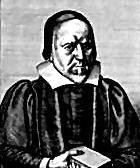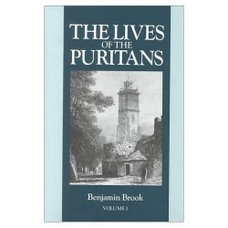Faithful Shepherd 7D
An evident place of Scripture carrying the sense after the letter with proof thereof
Ecclesiastes 7:22 Surely there is no man just in the earth, that doth good and sinneth not.
Here looking upon this place and observing the words, nothing I find obscure, needing interpretation but the right sense to be as the words openly declare, for the same agrees with the analogy of faith, it being a principle taught that all men are sinners, the first petition teaching every man to ask pardon of his sins. It agreeth with the circumstances of the place, and Solomon's purpose, also with other Scriptures such as Ps 14:3, La 3:2, 1 Jn 1:8, Ro 7:19.
Therefore this and the like Scriptures delivering in the letter the true meaning, we are to proceed to instructions without searching forth of any other sense from the words, or standing upon explaining of the words, being not obscure except the rudeness of the auditory untaught in common things doth require a brief unfolding of the words as one cometh to them. For there is nothing so clear but even the main points of Christianity needeth opening (as in this place – who is a just man; what sin is and to do good) to such as be uncatechised and not instructed in the common terms of religion such as law, gospel, faith, repentance, flesh, spirit, etc.
Ecclesiastes 7:22 Surely there is no man just in the earth, that doth good and sinneth not.
Here looking upon this place and observing the words, nothing I find obscure, needing interpretation but the right sense to be as the words openly declare, for the same agrees with the analogy of faith, it being a principle taught that all men are sinners, the first petition teaching every man to ask pardon of his sins. It agreeth with the circumstances of the place, and Solomon's purpose, also with other Scriptures such as Ps 14:3, La 3:2, 1 Jn 1:8, Ro 7:19.
Therefore this and the like Scriptures delivering in the letter the true meaning, we are to proceed to instructions without searching forth of any other sense from the words, or standing upon explaining of the words, being not obscure except the rudeness of the auditory untaught in common things doth require a brief unfolding of the words as one cometh to them. For there is nothing so clear but even the main points of Christianity needeth opening (as in this place – who is a just man; what sin is and to do good) to such as be uncatechised and not instructed in the common terms of religion such as law, gospel, faith, repentance, flesh, spirit, etc.
An obscure Scripture which cannot be taken according to the letter.
Matthew 26:26 This is my body
1. The Papists exposition false and proved. In examining our expositions upon places we must first of all refer the matter to some point of catechism and after that principle of divinity proceed therein.
This is an obscure Scripture and cannot be meant literally as the Papists expound them, as if Christ had said 'This bread is my natural body, born of the virgin Mary my mother by transubstantiation', for it is absurd and too gross a conceit. Therefore we search out another sense and say as if Christ had said, indeed as he meant The bread is a sign of my body sacramentally.
Now to try out expositions we must come to the former rules. First, to confute the Papists, before we confirm our own, the matter in hand is about the sacrament (for this is ever to be marked, of what the place speaketh, so that we may refer it to some catechism point, to try the interpretation by, as places speaking of Christ, we must refer them to his nature or offices. And according unto the principles therein learned examine our expositions). Therefore we are to refer this predication to the doctrine of sacraments, where we shall find their exposition to be against the nature of a sacrament, which is a relation and not truly a substance, a sign as well as the thing signified.
Christ is not bodily in the sacrament
2. Bring it to another part of the catechism, to the creed, and we shall find it to be against two articles of the same; of Christ's true human nature, having a true body with all the dimensions, which being so, cannot be enclosed in a wafer cake. Also against Christ sitting at the right hand of his Father, which is ever true at all moment of times, but this cannot I believe if he be in the sacrament and every morning mass and so often as the sacrament is celebrated. It cannot be said that one true body can be at one instant in two places.
3. Try it by the circumstances of the place, and it is overthrown, considering who administered it, Jesus Christ, sitting at the table, and the bread in his hand, by which either must his body sitting at the table be a fantastical body, if the bread was his true body or the bread but bread, if the bread was then but bread, it was not transubstantiated, belike till after his resurrection, and in so saying the first institution should be defective, and the disciples of Christ to receive less than we do, if it be now transubstantiated. Note again, that it is called bread it and appears ever bread. Now if it were changed, it were a miracle and no miracle but it was sensible. The disciples they took it, saw Christ when they ate it, and felt no flesh. The end of a sacrament is to remember him; now we remember not things present. It is against therefore the end of a sacrament.
4. Lastly, it is against Scripture, Acts 3:21. The exposition is therefore false, too cannibal like, allowing the eating of man's flesh, which the Jews abhorred to hear of. It is false, foolish and absurd, against religion, reason, sense, and natural instinct.
Our exposition true and plainly proved
Contrariwise our exposition is true, on the contrary agreeing with the nature of a sacrament, with articles of faith, with Scripture (John 6:63, Acts 3:21) with all the circumstances of the place, and with places speaking of the like matter, in like manner, and yet no transubstantiation (Gn 17:10, 1 Co 10:4, 11:25). Therefore this must be given and the right meaning of the words.
Matthew 26:26 This is my body
1. The Papists exposition false and proved. In examining our expositions upon places we must first of all refer the matter to some point of catechism and after that principle of divinity proceed therein.
This is an obscure Scripture and cannot be meant literally as the Papists expound them, as if Christ had said 'This bread is my natural body, born of the virgin Mary my mother by transubstantiation', for it is absurd and too gross a conceit. Therefore we search out another sense and say as if Christ had said, indeed as he meant The bread is a sign of my body sacramentally.
Now to try out expositions we must come to the former rules. First, to confute the Papists, before we confirm our own, the matter in hand is about the sacrament (for this is ever to be marked, of what the place speaketh, so that we may refer it to some catechism point, to try the interpretation by, as places speaking of Christ, we must refer them to his nature or offices. And according unto the principles therein learned examine our expositions). Therefore we are to refer this predication to the doctrine of sacraments, where we shall find their exposition to be against the nature of a sacrament, which is a relation and not truly a substance, a sign as well as the thing signified.
Christ is not bodily in the sacrament
2. Bring it to another part of the catechism, to the creed, and we shall find it to be against two articles of the same; of Christ's true human nature, having a true body with all the dimensions, which being so, cannot be enclosed in a wafer cake. Also against Christ sitting at the right hand of his Father, which is ever true at all moment of times, but this cannot I believe if he be in the sacrament and every morning mass and so often as the sacrament is celebrated. It cannot be said that one true body can be at one instant in two places.
3. Try it by the circumstances of the place, and it is overthrown, considering who administered it, Jesus Christ, sitting at the table, and the bread in his hand, by which either must his body sitting at the table be a fantastical body, if the bread was his true body or the bread but bread, if the bread was then but bread, it was not transubstantiated, belike till after his resurrection, and in so saying the first institution should be defective, and the disciples of Christ to receive less than we do, if it be now transubstantiated. Note again, that it is called bread it and appears ever bread. Now if it were changed, it were a miracle and no miracle but it was sensible. The disciples they took it, saw Christ when they ate it, and felt no flesh. The end of a sacrament is to remember him; now we remember not things present. It is against therefore the end of a sacrament.
4. Lastly, it is against Scripture, Acts 3:21. The exposition is therefore false, too cannibal like, allowing the eating of man's flesh, which the Jews abhorred to hear of. It is false, foolish and absurd, against religion, reason, sense, and natural instinct.
Our exposition true and plainly proved
Contrariwise our exposition is true, on the contrary agreeing with the nature of a sacrament, with articles of faith, with Scripture (John 6:63, Acts 3:21) with all the circumstances of the place, and with places speaking of the like matter, in like manner, and yet no transubstantiation (Gn 17:10, 1 Co 10:4, 11:25). Therefore this must be given and the right meaning of the words.












No comments:
Post a Comment